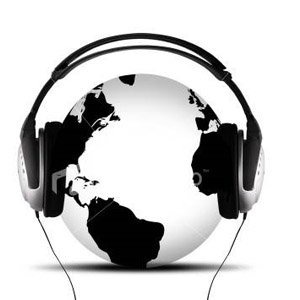Fact #61938
When:
Short story:
 A report by the International Federation of the Phonographic Industry (IFPI) states that 95% of music available online worldwide in 2008 was downloaded illegally.
A report by the International Federation of the Phonographic Industry (IFPI) states that 95% of music available online worldwide in 2008 was downloaded illegally.Full article:
Robert Smith (The Cure) : Last year I was posting a lot of stuff about the absurdity of the notion that music should be free, which is common among a lot of the younger generation.
I came right up against it and had various online spats with different people including one esteemed journalist from the NME who should have known better than to dismiss me as being too old to understand. My point was that I value what I do as art but also I put a commercial value on it. If I set a price that's too high people just won't pay it, but I still think it has intrinsic value. You can argue whether I'm right or wrong on that point, but I hold to it, I think all art has a value. In order for society to have a class of people who, to state it simply, make art, they can't also have a job.
You either have a society that has an artist class or you don't. If you don't, there's an entirely different discussion to be had.
To think you can only survive by playing live and selling t-shirts and your music itself should be free, to me that's a nonsense. Why aren't the concerts free? Why isn't the t-shirt free? There's a whole fabric and the way the music business has reacted to it is so ludicrous because the argument that should be put forward and could be won with the younger generation is about value, a conceptual argument about what things are worth and why. It shouldn't be about cutting off people's internet connections if they keep downloading.
So I engaged in that argument and, happily, I'm now seeing more of the younger artists saying, 'If we do want to be still making music ten years from now, how can we do that if what we make is considered to be worthless … unless we advertise someone else's shit.' That's where everyone is going at the moment, trying to get their music used in an advert. I come from a generation that says, 'If you ever use my music in an advert, I'll kill you.'
It's hard to think of myself in terms of being from a different era but the point about art being of value is one that I hold to and always have done. I'm prepared to pay money. It's a trade of goods. Money is just a substitute for bartering, or it represents however much I get paid per hour. In order to have the pleasure of X I hand over Y.
How has it come to the point where your music is worthless but Playstation games are worth fifty quid a throw? It has nothing to do with digital rights or any of the rest of it. It's an argument about the value of music.
(Source : interview with Johnny Black, 10 September, 2009)
Tweet this Fact
I came right up against it and had various online spats with different people including one esteemed journalist from the NME who should have known better than to dismiss me as being too old to understand. My point was that I value what I do as art but also I put a commercial value on it. If I set a price that's too high people just won't pay it, but I still think it has intrinsic value. You can argue whether I'm right or wrong on that point, but I hold to it, I think all art has a value. In order for society to have a class of people who, to state it simply, make art, they can't also have a job.
You either have a society that has an artist class or you don't. If you don't, there's an entirely different discussion to be had.
To think you can only survive by playing live and selling t-shirts and your music itself should be free, to me that's a nonsense. Why aren't the concerts free? Why isn't the t-shirt free? There's a whole fabric and the way the music business has reacted to it is so ludicrous because the argument that should be put forward and could be won with the younger generation is about value, a conceptual argument about what things are worth and why. It shouldn't be about cutting off people's internet connections if they keep downloading.
So I engaged in that argument and, happily, I'm now seeing more of the younger artists saying, 'If we do want to be still making music ten years from now, how can we do that if what we make is considered to be worthless … unless we advertise someone else's shit.' That's where everyone is going at the moment, trying to get their music used in an advert. I come from a generation that says, 'If you ever use my music in an advert, I'll kill you.'
It's hard to think of myself in terms of being from a different era but the point about art being of value is one that I hold to and always have done. I'm prepared to pay money. It's a trade of goods. Money is just a substitute for bartering, or it represents however much I get paid per hour. In order to have the pleasure of X I hand over Y.
How has it come to the point where your music is worthless but Playstation games are worth fifty quid a throw? It has nothing to do with digital rights or any of the rest of it. It's an argument about the value of music.
(Source : interview with Johnny Black, 10 September, 2009)